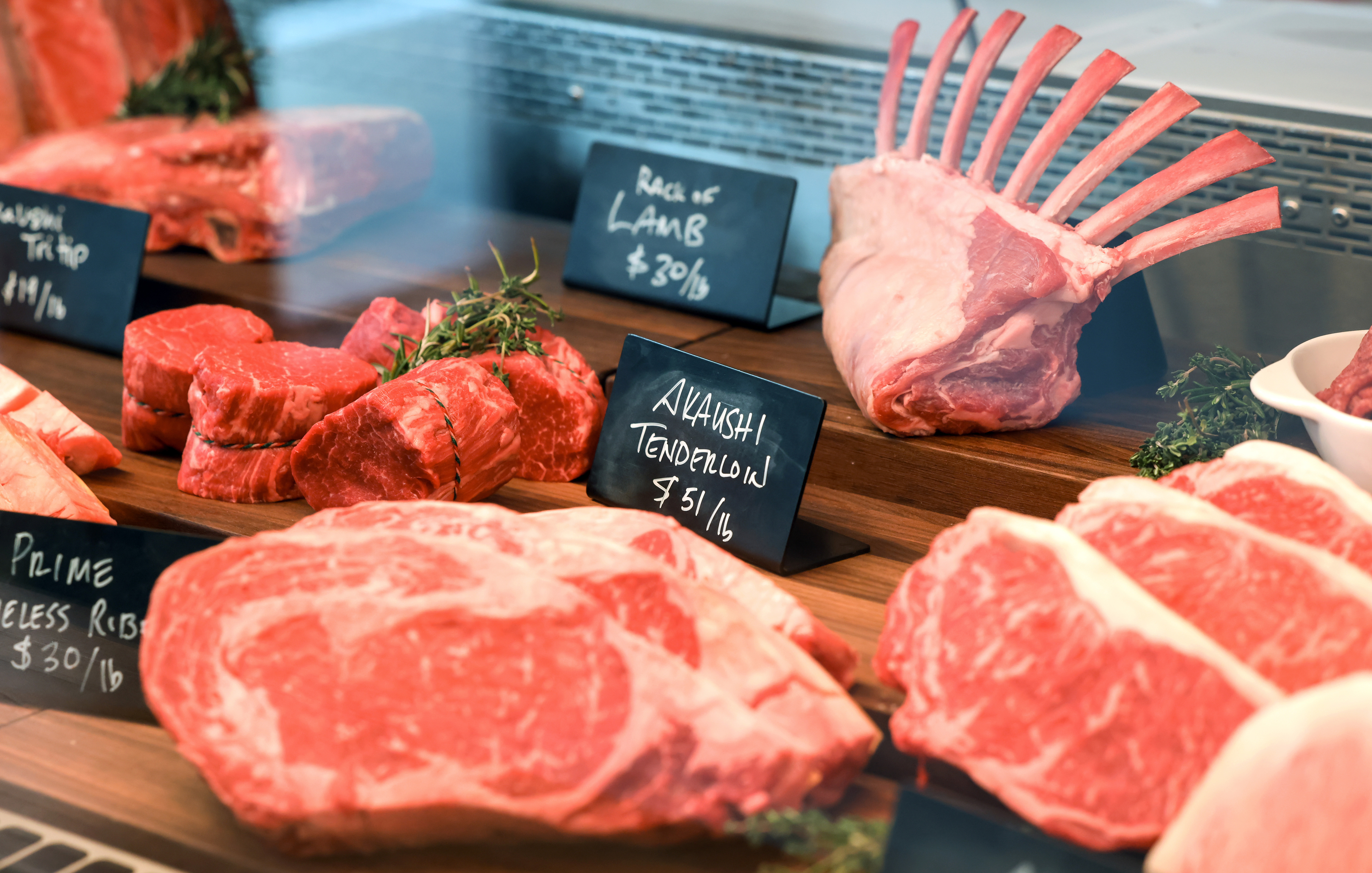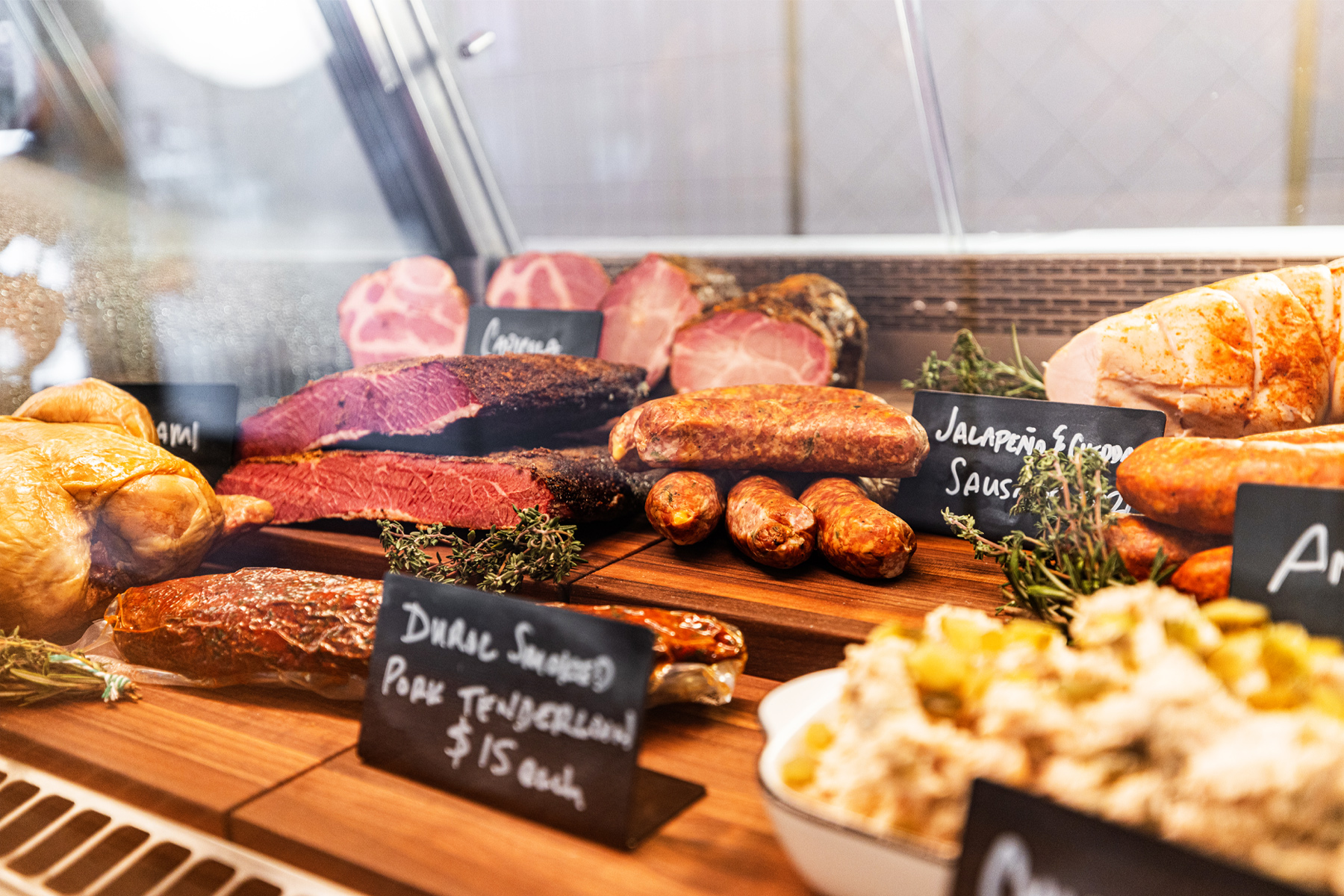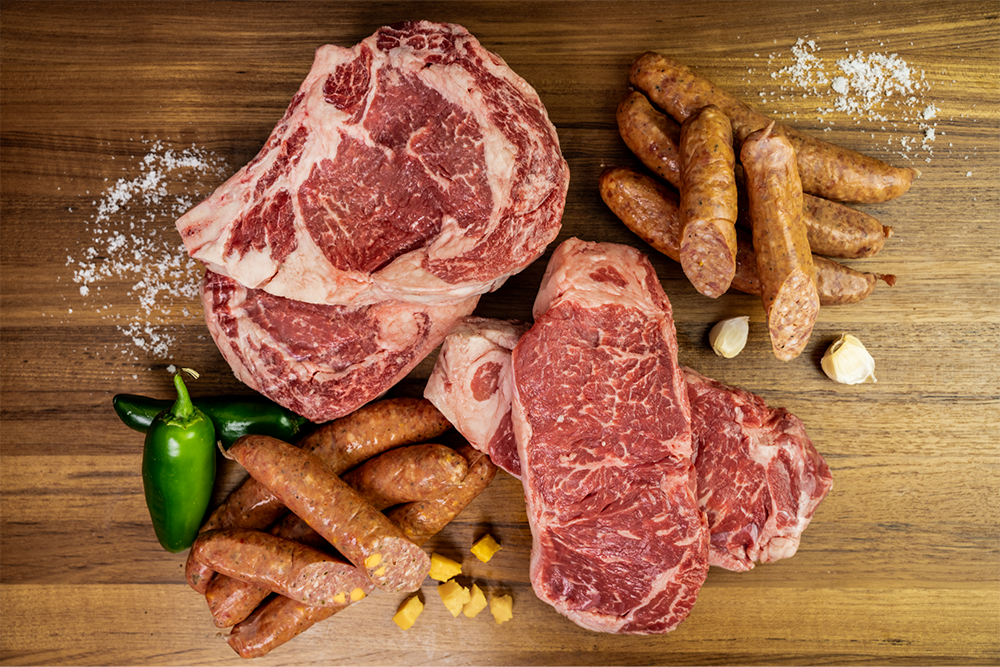Why Picking a Meat Market Over a Grocery Store Makes a Difference in Preference and Quality
The difference in between acquiring meat from a specialized market versus a grocery store frequently hinges on the nuanced layers of taste and quality. Meat markets generally emphasize freshness, sourcing their items from regional farms, which not only enhances taste yet likewise promotes lasting methods. The know-how of knowledgeable butchers can provide indispensable insights right into selecting the appropriate cuts for different culinary applications, making certain an extra tailored experience. The ramifications of these choices extend past plain taste; they increase crucial concerns regarding the wider impact on customer routines and regional economic situations. What else may be at stake?

Quality of Products
Prioritizing freshness is a considerable benefit of picking a meat market over a supermarket. Meat markets normally offer products that are sourced in your area and processed with a concentrate on maintaining ideal quality. Unlike supermarkets, where meat may be saved for extended periods, meat markets typically receive everyday distributions, ensuring that their stock is constantly restored with high-quality cuts.
Furthermore, meat markets generally have an extra effective supply chain, reducing the time from ranch to table. This fast turnover not just improves the flavor and texture of the meat yet likewise offers customers with guarantee pertaining to the high quality of the products they purchase. The competent butchers at meat markets can also provide beneficial insights into the quality of their offerings, as they are thoroughly acquainted with their providers and the conditions under which the meat is taken care of.
Additionally, meat markets frequently focus on entire cuts and specialty items that might not be offered in grocery stores, permitting customers to check out a variety of alternatives that are fresher and a lot more delicious. This commitment to freshness eventually adds to a superior culinary experience, making meat markets an attractive option for critical consumers.
Sourcing and Sustainability
The dedication to top quality at meat markets expands past quality to incorporate sourcing and sustainability techniques. Unlike large grocery stores, which frequently count on mass-produced products, meat markets prioritize moral and neighborhood sourcing. This approach not only supports local farmers and breeders but additionally decreases the carbon impact connected with transferring meat over fars away.

Additionally, meat markets typically use a range of cuts and specialty meats that reflect the seasons and regional culinary traditions. This commitment to sustainability fosters a connection between consumers and their food sources, advertising openness regarding the origins of the meat they purchase. By choosing meat markets, consumers can appreciate not just enhanced flavors but also the contentment of supporting sustainable and responsible agricultural methods.
Expert Expertise and Recommendations
While buying at a meat market, customers take advantage of the expert expertise and individualized suggestions used by knowledgeable butchers. These specialists are normally well-trained and possess comprehensive experience in the meat market, allowing them to offer insights that go much beyond the basics found in a supermarket. They can lead customers on selecting the right cuts for specific recipes or occasions, making sure optimal taste and tenderness.

Furthermore, butchers commonly take the time to involve with customers, responding to concerns and sharing pointers that are not readily offered in a supermarket setup. This level of tailored service promotes a deeper link in between customers and their food, eventually raising the general culinary experience. By selecting a meat market, customers get accessibility to a riches of expertise that can significantly affect their food preparation and enjoyment of meat.
Flavor Profiles and Range
When checking out the offerings at a meat market, clients are often rewarded with a diverse array of flavor profiles and cuts that are usually not available in grocery stores. Unlike mass-produced meat items, which usually focus on harmony, meat markets curate their selections based on top quality and local uniqueness. This results in a range of meats that show one-of-a-kind tastes, structures, and prep work methods.

Seasonal and locally sourced choices additionally boost the experience, as these items frequently possess remarkable freshness and flavor. The knowledgeable butchers at meat markets can guide customers on the most effective cuts for particular meals, guaranteeing that each choice lines up with desired flavor accounts and food preparation strategies. On the whole, the selection and top quality discovered in meat markets not only raise the culinary experience but also encourage expedition and testing in home cooking.
Supporting Local Economies
Picking a meat market not just improves culinary experiences via varied flavor accounts however likewise plays a considerable role in sustaining regional economic climates (bagley meat market edwardsville il). When consumers choose meat markets over bigger supermarket chains, they are more probable to involve with organizations that resource their products from local ranches and manufacturers. This technique promotes a lasting agricultural setting, motivating farmers to maintain typical methods that generate high-grade meats
Additionally, meat markets commonly employ local staff, which adds to work production and retention within the neighborhood. The financial effect prolongs beyond the immediate organization; cash spent at local establishments has a tendency to distribute within the area, profiting different markets such as transportation, marketing, and retail. This local financial investment assists boost the overall financial health of the area.
Additionally, meat markets frequently stress openness and ethical sourcing techniques, which reverberate with consumers increasingly concerned regarding the beginnings of their food. By selecting to buy these establishments, customers not just appreciate exceptional find more information products however also attest their dedication to sustaining their area's economy. Fundamentally, selecting a meat market is a purposeful selection that nurtures both personal satisfaction and wider economic vigor.
Conclusion
Choosing a Check This Out meat market over a supermarket considerably affects preference and quality. The emphasis on freshness, sustainable sourcing, and professional understanding adds to superior cooking experiences. Access to unique cuts and diverse taste accounts improves meal prep work and pleasure. Furthermore, supporting regional economies fosters neighborhood connections and promotes lasting agricultural methods. On the whole, the benefits of selecting a meat market prolong past private choices, influencing wider economic and ecological factors while boosting the art of food preparation.
Unlike supermarkets, where meat might be saved for extensive periods, meat markets often get day-to-day shipments, ensuring that their supply is continually renewed with high-grade cuts.
The experienced butchers at meat markets can likewise supply useful understandings right into the freshness of their offerings, as they are thoroughly familiar with their suppliers and the problems under which the meat is taken care of.
Moreover, meat markets typically use a range of cuts and specialty meats that mirror the seasons and regional culinary customs. By selecting a meat market, customers obtain accessibility to a riches of knowledge that can considerably influence their cooking and satisfaction of meat.
Unlike mass-produced meat items, which often prioritize harmony, meat markets curate their options based on top quality and local specificity.